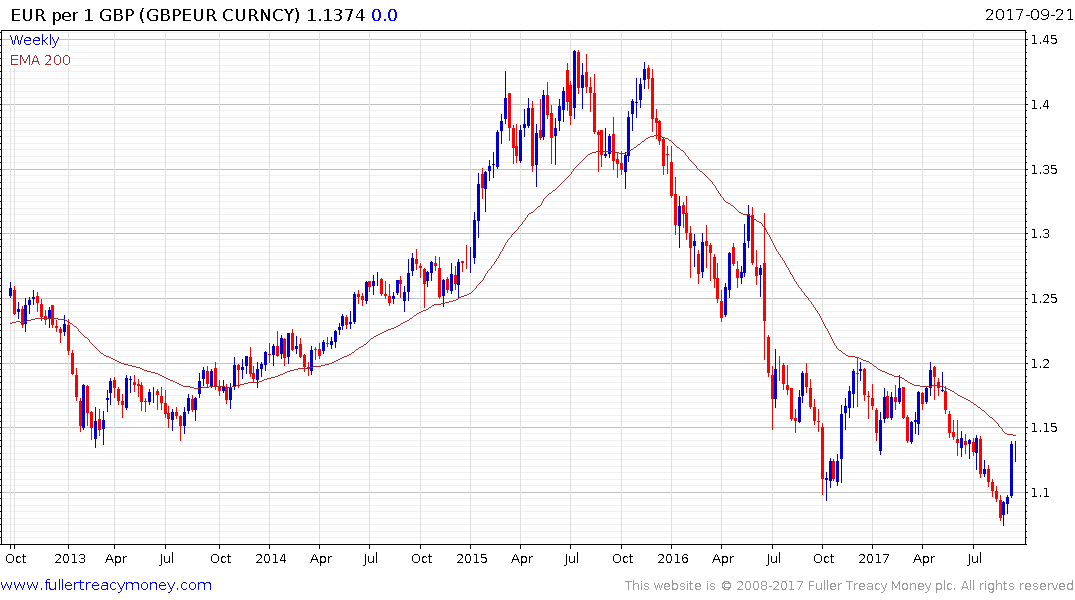May Makes Commitment on Cash in Bid to Break Brexit Deadlock
This article by Tim Ross , Simon Kennedy , and Ian Wishart for Bloomberg may be of interest to subscribers. Here is a section:
In delivering her most detailed roadmap yet for the divorce, May gave the clearest indication yet that Britain will pay to smooth its departure from the bloc. Her words were immediately welcomed by the EU’s chief negotiator Michel Barnier.
“The U.K. will honor commitments we have made during the period of our membership,” May said in a much-anticipated speech in the Italian city of Florence. A government official later clarified that meant she was open to discussing financial commitments beyond the scope of the EU budget, and the U.K. would honor its dues more broadly.
She made the promise while also proposing paying money and accepting the EU’s rules for two years after Brexit takes effect in March 2019 in return for a transitional period which mirrors the status quo of tariff-free, regulation-light commerce -- and freedom of movement.
The May administration is willing to concede to EU demands that it meet previously agreed obligations to the EU budget and will also uphold just about all the EU’s regulations for at least two years after the exit is completed. The announcement of a willingness to pay was welcomed by the EU.
“The speech shows a willingness to move forward, as time is of the essence,” Barnier said in an emailed statement on Friday. “We need to reach an agreement by autumn 2018 on the conditions of the United Kingdom’s orderly withdrawal from the European Union.”
However, one has to think that the UK is still leaving its options open by playing for time. On the one hand, the EU is saying that it is impossible to negotiate a trade agreement in two years and meanwhile the Macron government in France is saying it is open to treaty change. If the May government survives its full term, which is not the most likely scenario, the next general election is likely to be fought on the question of how successful negotiations with the EU have been. They are likely hoping a reform agenda is adopted within the EU once the German elections are out of the way. We have to at least consider the possibility that after the negotiations, the UK will end up with a much closer relationship to the EU that many people envisage today.
In fact, the realisation that this is not only a possibility but even a probability may have been part of the motivation behind Boris Johnson’s letter in the Telegraph at the weekend. . I am reminded of this joke, which I originally saw in 1988, on “how German is to become the official language of the EU.” One of the dangers of agreeing to the EU’s framework for negotiations is that any agreement arranged subsequently is nestled in the technocratic language of the Eurozone’s bureaucracy making is even more difficult to extract the kind of concessions the UK wants on trade.

Meanwhile the Pound has now unwound its oversold condition relative to the trend mean against the Euro with a pause and consolidation now underway. A sustained move above €1.15 would break the more than two-year downtrend and signal a return to more than short-term demand dominance.


